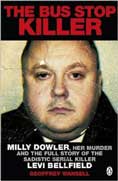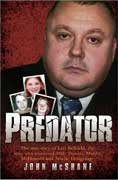
Brian Altman KC - Some Notable Cases
Death of PC Andrew Harper
R v Long, Bowers and Cole
Brian led for the prosecution in the high-profile case concerning the untimely death of PC Andrew Harper, a Thames Valley Police Officer who was killed in the line of duty in August 2019 in Berkshire. The three defendants had been involved in the theft locally of a quad bike and were fleeing in their car when PC Harper tried courageously to apprehend them. Caught by his ankles in a tow rope tied to the boot of their car, he was dragged to his death by the car for over a mile.Acquittal of former police chief
R v GD
In June 2017, Brian, who was instructed privately by Ian Kelcey of Kelcey & Hall of Bristol, secured the acquittal of GD, a former senior police chief in Avon & Somerset , who was accused of sexually assaulting women on cross country trains in the west country. GD had been accused by 3 women of 5 sexual assaults, but, following a 5 day trial at Bristol Crown Court, the jury acquitted GD of all the charges. www.dailymail.co.uk/news/article1984 murder in Bath
R v Hampton
This was the high profile case of the murder and sexual assault of 17 year old Melanie Road in Bath in 1984. The prosecution case was that she had been stabbed to death and sexually assaulted in a residential street as she returned home from a night out.
Police misconduct
R v LW
In this high profile case the prosecution alleged that three police officers and one PCSO had misconducted themselves in public office in July 2013 in Bristol in relation to their dealings with Bijan Ebrahimi, a disabled refugee from Iran.
Bristol teen killing
R v SW
Brian was instructed privately by Ian Kelcey of Kelcey & Hall of Bristol to represent a 15-year-old girl of previous good character who was accused of secondary participation in murder by the beating of a man on the street together with an older youth who had pleaded guilty to what he had done. The trial took place in Bristol in June 2014.
Conspiracy to import drugs
R v RF
In 2015, Brian was privately instructed by David Sonn of Sonn Macmillan Walker to represent a businessman, RF, accused of complicity in a large-scale drugs conspiracy. It was alleged that RF, who owned a haulage company, was using his business importing parts to car-making factories in the UK from continental Europe to conceal the importation and onward supply of very large amounts of cannabis. Following two successful legal arguments, RF was acquitted on both counts.
‘Babes in the Woods’ murders
R v Russell Bishop
Brian led for the prosecution in this notorious murder case from 1986. Both the victims were 9-year-old girls. Bishop led the little girls into the woods within half a mile of their Brighton homes and strangled them to death and sexually assaulted them. He was charged and tried with the murders at Lewes Crown Court but acquitted in December 1987. However, in 1990 he went on to abduct, attempt to murder and sexually assault a 7-year-old girl for which he was convicted and sentenced to life imprisonment.
The Millionaire and the Missing Body
R v Robert Ekaireb
Brian led for the prosecution in this historic ‘cold-case’ missing body murder and the subsequent appeal. The defendant was a wealthy property owner. He was convicted in 2013 of the murder of his pregnant Chinese wife who went missing in October 2006. The pair had met in Ireland some years before where she had been a dancer. They eventually married in China. On their return to the UK, they lived together in a flat in Hampstead but the marriage developed problems with the wife leaving the defendant on occasions but always eventually returning home. However, one day in October 2006 she simply disappeared without trace.
‘Justice for Claire’
R v Colin Ash-Smith
This was the high profile murder of 16-year-old Claire Tiltman in Greenhithe, North Kent. Claire had been savagely stabbed to death in an apparently motiveless attack a dark alley one evening in January 1993.
Following a series of investigations by Kent Police over the years, and a cold case review, Colin Ash-Smith was charged with her murder in 2014. At that time he was serving a life sentence for a sexually motivated knife attack on a woman in 1988, and another apparently motiveless stabbing attack on another woman over two years following the attack on Claire in 1995. Both the other women were fortunate to survive their ordeal. Ash-Smith was arrested immediately following the 1995 attack. In the course of their enquiries police discovered writings by Ash-Smith detailing his attacks as well as other planned attacks, which revealed his intentions and methods. This led police to charge him with the 1988 attack also. In 1996 Ash-Smith pleaded guilty to the 1988 and 1995 attacks and was sentenced to life imprisonment with a 15-year minimum term. Claire’s best friends mounted a high profile campaign called ‘Justice for Claire’ with questions about the case answered by the Prime Minister in Parliament. Following further painstaking police work Ash-Smith was charged with the murder in February 2014. Brian led the prosecution at his trial. The evidence against him was a mix of circumstantial evidence identifying Ash-Smith as Claire’s killer, together with evidence of his other attacks to prove features of similarity. He gave evidence in his defence but the jury convicted him in a little over three hours, and he was sentenced to life imprisonment, with a minimum term of 21 years. This case was featured in a BBC4 documentary series “The Prosecutors” in which cameras were allowed into court buildings for the first time. The programme, in which Brian was interviewed, followed milestones in the preparation and prosecution of the case to its successful conclusion. You can view a clip at The Prosecutors: Real Crime and Punishment
Witchcraft, exorcism and murder
R v Eric Bikubi & Magalie Bamu
This case was about the torture and murder of 15-year-old Kristy Bamu on Christmas Day 2010 in the defendants’ East London flat, together with a series of related assaults on two of Kristy’s siblings by their sister and her male partner.
The trial was written about in the acclaimed book ‘The Boy in the River’ (see right) by Dr Richard Hoskins who gave expert evidence for the prosecution about Congolese witchcraft and other belief systems.
Serial Killer: The Murders of Milly Dowler, Amélie Delagrange and Marsha McDonnell
R v Levi Bellfield
Brian led the two successful prosecutions of serial killer Levi Bellfield. In 2008, following a five month trial at the Old Bailey, Levi Bellfield was convicted of the 2003 murder of Marsha McDonnell in Hampton, the May 2004 attempted murder of Kate Sheedy in Isleworth, and the August 2004 murder of Amélie Delagrange on Twickenham Green.
The case was the result of a vast Metropolitan Police investigation, which focused on marshalling and analysing a huge array of CCTV evidence from a variety of sources and other technical and witness evidence to build a strong and compelling circumstantial case against Bellfield. Bellfield’s had targeted young women alighting from bus stops while cruising the area in a vehicle. He would stop his vehicle, and then follow his intended victim on foot, striking them on the head rapidly from behind with a hammer type instrument. There was no obvious sexual or other motive other than the hatred of women. In the case of Kate Sheedy, instead of alighting from the car, he deliberately drove at her in the car he was driving, and having struck her, drove over her repeatedly in order to kill her. Luckily Kate survived.
Three years later, in 2011, Bellfield was convicted again at the Old Bailey of the 2002 abduction and murder of Milly Dowler in Walton-on-Thames. Although Milly’s body was found and recovered in woodland some six months after she was abducted, the cause of death was unascertainable. Milly’s killing had occurred the year before Bellfield killed Marsha, but the Surrey police investigation, did not result in Bellfield’s prosecution until the spring of 2011. The case relied on many strands of circumstantial evidence including Bellfield’s convictions for the other two murders and the attempted murder. The jury convicted Bellfield in little over a day.
The case led to national headlines for days with recriminations over the nature of the cross-examination of Milly’s father and revelations about the hacking of Milly’s phone, which in due course led to the phone hacking scandal and the Leveson inquiry. Bellfield was sentenced in each case to a whole life sentence. He is believed to be the only whole lifer to be serving two whole life sentences. Two books (see right) were written about the trials: ‘The Bus Stop Killer’ by Geoffrey Wansell, and ‘Predator’ by John McShane.
South London crossfire gunfight murder
R v Armel Gnango
During a pre-planned gunfight on a housing estate in South London, which took place between Gnango and an unidentified youth, a Polish care worker who was walking home from work was killed in the crossfire when a bullet fired from the gun of the other youth struck her in the head and killed her instantly.
Gnango had not fired the fatal bullet and the victim had been the unintended target, all of which led to extremely novel and complex legal arguments both at trial and later on appeal (both led by Brian) as to the proper limits of the knotty legal concepts of the joint enterprise principle, secondary participation and transferred malice.
The Court of Appeal overturned Gnango’s original conviction for murder, but in December 2011 the Supreme Court, overturned the Court of Appeal’s decision by a majority of 6-1, and restored the offender’s conviction for murder. Textbooks refer to the case as one of the most important decisions in recent legal history, albeit on highly unique facts, and the majority ruling has been subject to much academic analysis and criticism. For more information about this groundbreaking case click here
Sally Anne Bowman murder
R v Mark Dixie
Brian led the prosecution of Mark Dixie who was found guilty in 2008 of the murder in Croydon of model Sally Anne Bowman.
Dixie was convicted of Sally Anne’s murder and ordered to serve a 34 year minimum term of a mandatory life sentence, believed to be one of the longest ever passed for a single murder of this kind.
The Canal Murderer
R v John Sweeney
In 2011, Brian led the prosecution of John Sweeney who was convicted of the murder of Melissa Halstead in Holland in 1990 and the murder of Paula Fields in London 11 years later.
Melissa was an American who had worked as a model as a teenager. In the late 1980s she left the US to travel across Europe. She met the defendant during her travels and entered a relationship with him. They ended up living in Amsterdam but by the spring of 1990 she disappeared from her flat. Her dismembered remains were later found in a bag floating in a canal in Rotterdam. The same fate befell Paula Fields a decade later. Her mutilated remains were found in bags at the bottom of the Regent’s Canal in London. She had also been in a relationship with Sweeney. In the meantime, in late 1994, Sweeney had tried to kill another girlfriend who survived her terrible ordeal. He was convicted of that attempted murder in 2002. In 2009 a j joint Anglo-Dutch murder investigation identified evidence implicating John Sweeney. It was the first investigation of its kind and was funded by Eurojust. Among the evidence incriminating Sweeney were his own confessions to the murder of Melissa in his writings and in lurid and erotic drawings made by him, one of which he titled ‘The Scalp Hunter’. Sweeney was sentenced to a whole life order.
Taliban bomb-maker
R v Khalid Ali
Khalid Ali disappeared from London in 2011 and found his way to Afghanistan where he joined the insurgency, becoming a bomb-maker for the Taliban and the affiliated terror organisation, Al Qaeda.
ISIS cyber-terrorist
R v Ullah
This was the prosecution of a radicalised man living in Cardiff who from his bedroom sought to provide his technical know-how to the senior ISIS hierarchy in how to conceal their online presence by creating instructional videos on encryption and the dark web which he posted on a blog site hosting extreme jihadi material. He proposed to ISIS and built a decentralised platform on which the site could be duplicated in order to avoid it being taken down by the authorities. He was also found in possession of USB cuff links on one of which was found loaded a LINUX operating system as well as books on missile technology, both of which he possessed for terrorist purposes.
Terror Murder Plot
R v Hassane, Majeed, Hamlett and Cuffy
This was the first prosecution of a major Islamic State-influenced plot to kill in the UK. The terror plot was successfully disrupted by the Security Services and police in late September and October 2014 with the arrests of several individuals.
Hassane and Majeed plotted to kill servicemen or policemen in drive-by style shootings with a firearm with which they had been supplied by Hamlett and Cuffy. The plot was directed and funded from abroad, most likely from Syria, and while Hassane, who in July 2014 had pledged his allegiance to Islamic State, led the plot from Sudan where he was studying medicine, Majeed who had been studying physics in London acquired the gun from Hamlett and he was tasked to arrange for an untraceable moped and a lock-up, while engaging in secret communications with his controllers abroad on a laptop. The plot received further impetus in late September 2014 when the official spokesman for Islamic State issued a fatwa to extremists in the West to kill.
Returning Jihadis
R v Khawaja, Bhatti and Ali
Khawaja went to Syria in 2014 to join with Rayat al Tawheed, an IS-related jihadist insurgent force in Syria where he received weapons training with a view to fighting. He returned to the UK after Rayat al Tawheed put out a false story on social media that Khawaja had been killed in battle in order to provide cover for his secret return. His cousin Bhatti assisted him to get back into the UK, and Ali had helped fund his journey into Syria. All pleaded guilty to a variety of terrorism offences.
R v Sarwar and Ahmed
These two young men pleaded guilty to engaging in conduct in preparation of terrorism, after returning after five months in Syria with Al Nusra, an Al Qaeda-affiliated group, fighting Assad’s regime. Originally they were sentenced to ‘extended sentences’ of 17 years 8 months which was reduced on appeal to 10 years 3 months.
Guantanamo Bay
R v Moazzam Begg
Moazzam Begg is a former Guantanamo detainee who was charged with terrorism offences arising from a lengthy trip he made to Syria between October 2012 and April 2013 during the civil war. Following intelligence discoveries, which undermined the case, the decision was made to drop the case against him. The case, which was politically sensitive, attracted national publicity.1982 Hyde Park Bombing
R v John Downey
John Downey was suspected of being a high level IRA man in the 1980s. In May 2013 he transited Gatwick airport on his way to Greece on a family holiday.
Birmingham Bomb threat
R v Irfan Naseer, Irfan Khalid & Ashik Ali
In February 2013 following a five-month trial, all three defendants from Birmingham were convicted at Woolwich Crown Court of a plot to become suicide bombers. They had been under surveillance, and probes planted in a safe house they were using allowed the authorities to eavesdrop their conversations over many weeks. This led to their eventual arrest and the discovery of Jihadist mindset material as well as a bomb-making diagram and the purchase and testing by the defendants of chemical mixes in pursuance of their plot.
Call Brian Altman KC on 020 7440 8888 or email: [email protected]
Brian Altman KC is a barrister regulated by the Bar Standards Board








